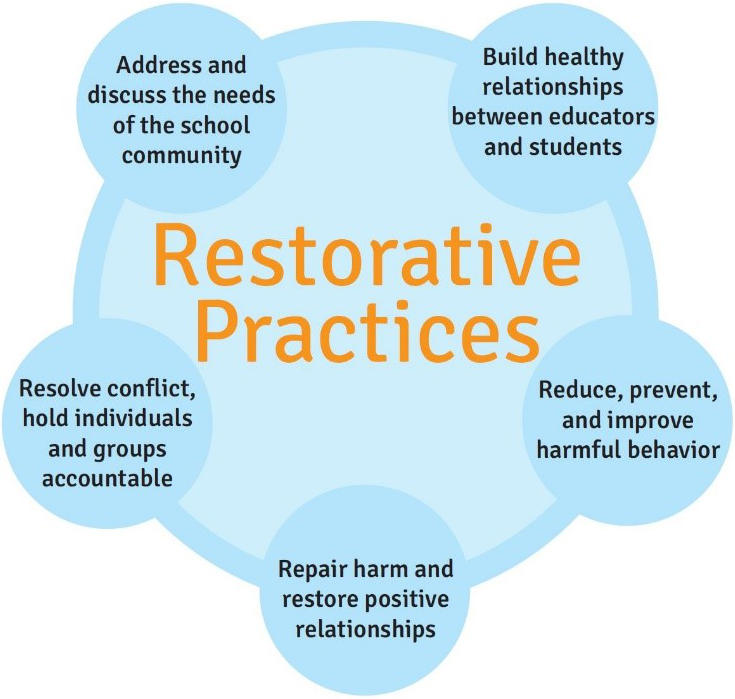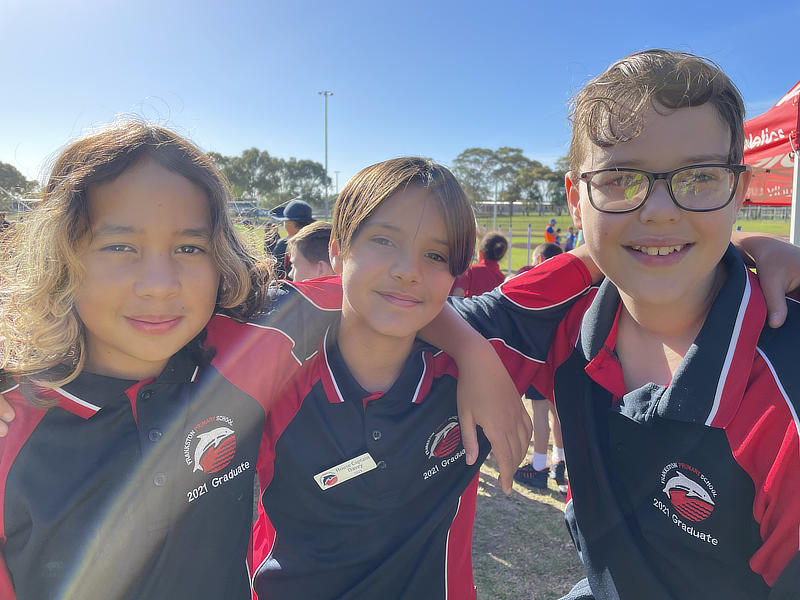Restorative Practice
Positive School Culture and Restorative Practice
Restorative practice is a whole school teaching and learning approach that encourages behaviour that is supportive and respectful. It puts the onus on individuals to be truly accountable for their behaviour and to repair any harm caused to others as a result of their actions.
A restorative approach focuses on building, maintaining and restoring positive relationships, particularly when incidents that involve interpersonal conflict or wrongdoing occur.
Restorative Practice is a positive approach that works with students, rather than doing things to them or for them.
A restorative approach focuses on building and maintaining positive relationships across the whole school community. It aims to create an ethos of respect, inclusion, cooperation, accountability and responsibility. Restorative Practice is a teaching and learning approach that promotes self-regulation and encourages behaviour that is supportive and respectful. It puts the onus on individuals to be truly accountable for their behaviour and to repair any harm caused to others as a result of their actions.

Restorative Practice at Frankston Primary School means:
- valuing quality relationships
- modelling empathy and respectful relationships
- valuing student voice and utilising collaborative problem solving
- viewing inappropriate behaviours as opportunities for learning
- applying procedural fairness
- recognising the importance of repairing damaged relationships
- separating the ‘deed’ from the ‘doer’
- using active listening and positive language and tone
- avoiding scolding, judging, lecturing or blaming
- fostering self-awareness in the student
- implementing consequences that are proportional and fair
- remaining future focused.

A restorative approach offers a continuum of strategies from informal conversations through to formal community conferencing and may include:
- positive classroom management strategies
- logical consequences
- Collaborative problem solving with students
- structured one-on-one conversations
- mediation
- conferencing
- circle time.
We foster a positive relational school culture through building positive relationships and seeking to repair and restore relationships.
Our school takes a restorative approach to resolving conflict and preventing harm and is our fundamental platform for developing positive classroom climates, building positive relationships, maximising student engagement, resolving conflict and addressing bullying.
Through the use of a whole school Restorative Practice approach, relationships that have been damaged are restored through conferencing, reflection, acceptance of responsibility, self-regulation of behaviour, restorative action, consequence and forgiveness. This approach promotes school-wide healthy relationships and contributes to the improvement of student learning.
Effective restorative questions Frankston Primary School uses:
- What happened? Value the student’s voice and perspective. Focus on the timeline of events without blame. Understand and identify triggers.
- What were you thinking about at the time? Develop emotional literacy by linking thoughts, feelings and actions.
- What have your thoughts been since? Assess reflection following the incident when emotions have de-escalated.
- Who has been affected by what happened? The key question to trigger empathy and remorse. Think beyond those directly involved to see the ‘ripple effect’ of actions and consider the personal impact.
- In what way have they/you been affected? Name or describe the impact and acknowledge the consequences.
- What do you think you need to do to make things right? Devise agreed, realistic and meaningful resolutions to heal the harm.
- If the same thing happened again, what would you do differently? An opportunity for learning and verbalising alternative strategies.
(Reference – NSW DoE 2019)
